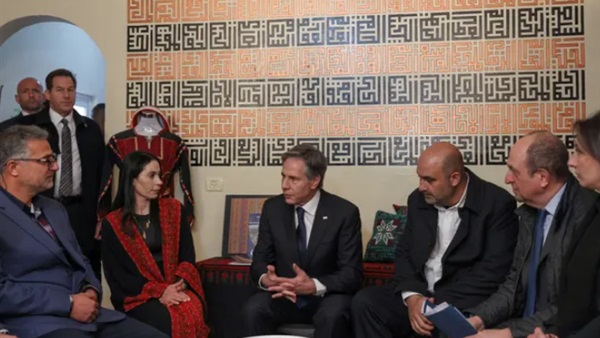Antony Blinken to meet Palestinian leaders amid round of deadly attacks

The US secretary of state, Antony Blinken, is due to meet
Palestinian leaders for his final stop on a Middle East tour that comes at a
critical time, with Israel and Palestine reeling from a round of devastating
attacks that threaten an explosion of violence.
After meeting the Israeli prime minister, Benjamin
Netanyahu, in Jerusalem on Monday, Blinken travelled on Tuesday to the occupied
West Bank city of Ramallah for discussions with the Palestinian president,
Mahmoud Abbas, and his prime minister, Mohammad Shtayyeh.
An Israeli operation in the Jenin refugee camp last week,
one of its deadliest raids in the West Bank for decades, killed 10
Palestinians, mostly gunmen but also two civilians, including a 61-year-old
woman. The next day, a Palestinian gunman killed seven Israelis outside a
synagogue in East Jerusalem in the worst such attack in recent memory.
Nearly two dozen people have been killed in total over the
past week, as heightened tensions have led to retaliatory attacks, including
shootings, targeting Israelis and Palestinians.
Blinken called for “urgent steps to restore calm” but
acknowledged it would be difficult. “We want to make sure that there’s an
environment in which we can, I hope, at some point create the conditions where
we can start to restore a sense of security for Israelis and Palestinians
alike, which of course is sorely lacking,” he said after meeting Netanyahu.
Expectations that Washington’s top envoy can take the region
off the path to more bloodshed are close to zero, with Blinken repeating the US
government’s longstanding aspirations for a “two-state solution” in which
Palestinians get their own country – an idea that is openly rejected by
far-right figures in Israel’s newly installed government.
Blinken’s visit is instead seen as an attempt to contain the
issue, as part of Joe Biden’s efforts to ensure the Israel-Palestinian crisis
does not overshadow the US’s broader goals, particularly defeating Russia in
Ukraine.
In Ramallah, Blinken is expected to urge Abbas to continue
working with Israel on security issues, which were cut as a show of anger after
the Jenin raid.
Abbas, however, has limited power and remains deeply
unpopular among Palestinians, who accuse him of acting as a subcontractor for
Israel to carry out its occupation. A new generation of frustrated and armed
Palestinian militias unconnected to their increasingly isolated leaders is
growing in power.
In Israel, the Netanyahu government’s response to the
killings has been to propose new measures that further punish Palestinians,
including making it easier to demolish the family homes of people who carry out
attacks – a practice that has been widely condemned as collective punishment.
The government also wants to make it easier for Israeli citizens to carry
weapons.





